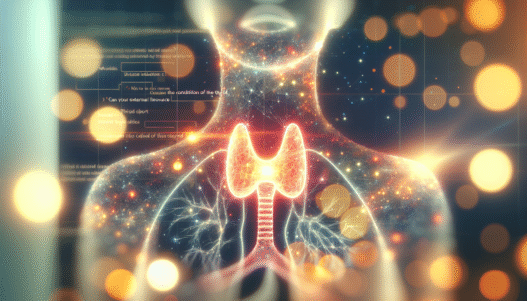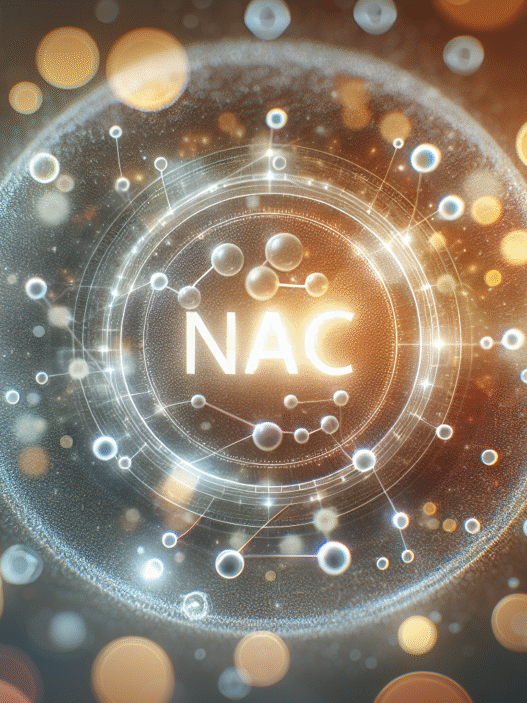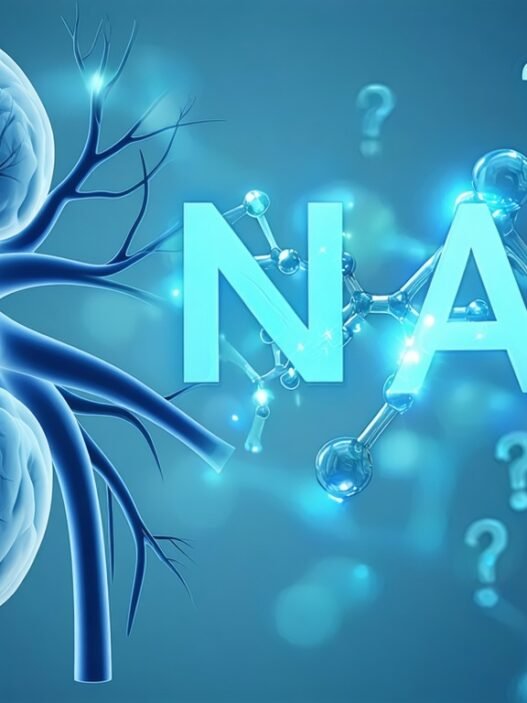Understanding NAC
Introduction to N-Acetyl Cysteine
N-Acetyl Cysteine (NAC) is a supplement derived from the amino acid cysteine. It is known for its antioxidant properties and is widely utilized in medical settings to treat various health conditions. Many people are increasingly interested in the health benefits of NAC, particularly in relation to liver support, detoxification, and overall longevity. Recent studies have also explored its potential effects on thyroid function and its role in stabilizing thyroid hormones, especially in individuals with hypothyroidism or Hashimoto’s disease. This has led to questions such as “can NAC mess with the thyroid?”
Mechanisms of Action
NAC works primarily by replenishing intracellular levels of glutathione, one of the body’s most potent antioxidants. This action helps to combat oxidative stress and reduce inflammatory processes in the body. Oxidative stress is a significant factor in various disorders, including those affecting thyroid function. Research indicates that NAC may have a positive impact on thyroid health, potentially benefiting conditions characterized by oxidative damage.
In addition, NAC has been shown to stabilize fluctuating blood sugar levels, which can be particularly beneficial for individuals with thyroid issues. Studies have indicated that in cases of acute nonthyroidal illness syndrome (NTIS), NAC administration results in no significant change in serum T3 levels, while placebo groups often saw declines in these levels (NCBI). This suggests that NAC not only supports antioxidant activity but may also play a critical role in maintaining stable thyroid hormone concentrations during acute illness scenarios.
In summary, NAC serves as a multifaceted compound that supports detoxification and overall health. Its effects on liver health, antioxidant capacity, and influence on thyroid function make it a valuable consideration for those concerned about their health. For a deeper dive into the various applications of NAC, check out our article on what is NAC N-Acetyl Cysteine used for?.
Impact on Thyroid Health
Exploring the effects of N-Acetyl Cysteine (NAC) on thyroid health is crucial for individuals seeking to understand if can NAC mess with the thyroid?. Research indicates that NAC could have various impacts on thyroid function and hormone levels.
NAC and Thyroid Function
NAC appears to exert a beneficial effect on thyroid function, particularly in individuals with obesity. A study found that after 8 weeks of supplementation, NAC significantly decreased the expression of the DIO3 gene, which is associated with thyroid function and metabolism, in visceral fat tissue compared to a placebo group (Genes & Nutrition). Furthermore, in patients who received NAC following a myocardial infarction, there was a considerable preservation of serum thyroid hormone levels, specifically T3, which typically declines in similar cases.
| Study | Findings |
|---|---|
| Genes & Nutrition | NAC reduced DIO3 gene expression in visceral fat tissue. |
| PubMed Central | NAC prevented T3 level decrease post-myocardial infarction. |
Effects on Thyroid Hormones
NAC supplementation appears to have a regulating effect on thyroid hormones. Patients receiving NAC showed a notable reduction in the increase of serum reverse T3 (rT3) levels, while T3 levels remained nearly stabilized (NCBI). This is particularly relevant for individuals with rates of thyroid hormone fluctuation, such as those diagnosed with Hashimoto’s or active hypothyroidism. Research suggests that NAC may positively impact thyroid health by reducing oxidative stress, stabilizing blood sugar levels, and supporting overall liver health, which is vital for optimal thyroid function and hormone production.
Overall, evidence supports the notion that NAC can positively influence thyroid health. It can mitigate some adverse effects on thyroid hormone levels, particularly in individuals with existing conditions that compromise thyroid function. However, individuals are advised to monitor their response to NAC and consult healthcare professionals if there are concerns regarding thyroid health or supplementation. For more insights on NAC’s overall uses, refer to our article on what is NAC N-Acetyl Cysteine used for?.
Benefits of NAC
N-Acetyl Cysteine (NAC) offers numerous health benefits that can contribute significantly to overall wellness. For individuals concerned about liver health, detoxification, and longevity, understanding these benefits is essential.
Liver Health Support
NAC plays a vital role in supporting liver health. It is well-known for its ability to enhance liver function by assisting in the breakdown of drugs and toxins in the body. This detoxification process is particularly advantageous for individuals with liver disease, as NAC can potentially improve liver function. Additionally, its antioxidant properties help reduce oxidative stress that can lead to liver damage.
Here’s a summary of NAC’s impact on liver health:
| Benefit | Explanation |
|---|---|
| Detoxification | Accelerates breakdown of drugs and toxins |
| Antioxidant support | Reduces oxidative stress in the liver |
| Enhanced function | Potentially improves liver and kidney function |
For more information on liver support, visit our article on is NAC good for your liver?.
Mental Health Benefits
NAC has been investigated for its positive effects on mental health. Research suggests that it may help resolve mental conditions such as depression through its ability to reduce oxidative stress and inflammation in the brain. By promoting a balanced mental state, NAC could help individuals manage anxiety and mood fluctuations.
Mental health benefits include:
| Benefit | Explanation |
|---|---|
| Reduction of oxidative stress | Supports brain health and function |
| Anti-inflammatory effects | May alleviate symptoms of depression |
| Balance in mood | Helps stabilize mental conditions |
To learn more, check out our article on does NAC help with anxiety?.
Blood Sugar Regulation
NAC may also contribute to blood sugar regulation, especially in people with insulin resistance. Studies indicate that NAC can improve insulin sensitivity, which is crucial for effective blood sugar control. This regulation is particularly beneficial for individuals with metabolic disorders such as polycystic ovary syndrome (PCOS).
Summary of blood sugar benefits:
| Benefit | Explanation |
|---|---|
| Enhanced insulin sensitivity | Improves body’s response to insulin |
| Regulation of blood sugar levels | Helps manage blood sugar in insulin-resistant individuals |
For further details, visit our article on how much NAC for blood sugar regulation?.
Overall, NAC’s impressive array of benefits positions it as a valuable supplement for individuals focused on liver health, mental well-being, and blood sugar management.
NAC in Medical Conditions
N-Acetyl Cysteine (NAC) has been studied for its role in various medical conditions, particularly in relation to thyroid health and critical illnesses. Two notable contexts in which NAC has shown potential benefits include Nonthyroidal Illness Syndrome (NTIS) and acute myocardial infarction.
Role in Nonthyroidal Illness Syndrome
Nonthyroidal Illness Syndrome (NTIS) is characterized by changes in thyroid hormone levels and can affect up to 75% of critically ill patients. In the acute phase, patients typically show low levels of T3 and high levels of reverse T3 (rT3). Oxidative stress has been identified as a contributing factor in disrupting peripheral thyroid hormone metabolism NCBI.
NAC may help mitigate some of the thyroid hormone disruptions associated with NTIS. Research indicates that NAC administration can prevent derangements in thyroid hormone concentrations commonly observed during the acute phase of various illnesses. By reducing oxidative stress, NAC could support thyroid function and help stabilize hormone levels Paloma Health.
Potential in Acute Myocardial Infarction
In studies on patients with acute myocardial infarction (MI), NAC has demonstrated potential benefits in maintaining thyroid hormone levels. It has been shown that NAC administration helps to prevent the decrease in serum thyroid hormone levels, especially T3, which typically plummets in patients following an MI PubMed Central.
Patients receiving NAC exhibited higher T3 levels at 12 hours post-treatment compared to those who received a placebo. While this suggests that NAC may have protective effects on thyroid function during and after MI, the overall impact on patient outcomes and mortality remains to be determined PubMed Central.
By examining the roles of NAC in these critical medical settings, it becomes evident that it may offer promising support in maintaining thyroid health amidst other health challenges. For a deeper understanding of what NAC is used for, check our article on what is NAC N-Acetyl Cysteine used for?.
Safety and Considerations
When using N-acetyl cysteine (NAC), it is important for individuals to consider its safety and potential interactions with medications. Understanding these factors can help optimize its benefits while minimizing risks.
Interaction with Medications
NAC has been found to interact with certain medications, which may increase the risk of unwanted side effects. For instance, it can enhance the effects of nitroglycerin, leading to symptoms such as headache, dizziness, and lightheadedness (WebMD). Additionally, NAC may potentially lower blood pressure, which could cause blood pressure medications to become overly effective, resulting in hypotension.
Other possible interactions include:
- Chloroquine: NAC might reduce its effectiveness when used to treat malaria.
- Blood Clotting Medications: NAC may slow blood clotting, increasing the risk of bruising or bleeding when taken with similar drugs.
It’s crucial for individuals to discuss any current medications with a healthcare provider before starting NAC to avoid potential complications.
Dosage and Administration
NAC is often available in various forms, including capsules, tablets, and powders. The appropriate dosage can depend on the individual’s health needs and the specific condition being addressed. For general use, the recommended dosage typically falls within the range of 600 mg to 1,800 mg per day, but individuals should always follow the dosage recommended by their healthcare professional.
| Form | Typical Dosage |
|---|---|
| Capsules/Tablets | 600 mg – 1,800 mg/day |
| Powder | Follow manufacturer’s instructions |
When considering the administration of NAC, it’s essential to take it as directed, often on an empty stomach for optimal absorption. Individuals may also be interested in the implications of daily use, and can learn more about this in our article on is it ok to take NAC every day?.
As with any supplement, individuals should be cautious and regularly consult their healthcare provider to tailor the dosage to their specific health requirements. Keeping track of any changes in health or side effects will be vital in ensuring safe usage.
NAC as an Antioxidant
N-Acetyl Cysteine (NAC) is widely recognized for its strong antioxidant properties, which play an essential role in managing oxidative stress and inflammation in the body.
Anti-inflammatory Properties
NAC functions as a powerful anti-inflammatory agent, contributing to the reduction of elevated inflammatory markers such as TNF-α and interleukins. This reduction is achieved through the suppression of NF-κB, a protein complex that regulates immune response (PubMed Central). Its anti-inflammatory effects can be beneficial for individuals suffering from various health conditions associated with inflammation.
Studies indicate that high-dose NAC may combat oxidative stress-induced lung and airway damage, often used in conjunction with other therapies in respiratory diseases like cystic fibrosis (WebMD). The ability of NAC to lower inflammation can also positively influence thyroid health by preventing derangements in thyroid hormone levels during acute health events such as myocardial infarction, highlighting its significance in managing oxidative stress.
Oxidative Stress Management
Oxidative stress is a crucial factor in the development of numerous chronic diseases, including those affecting liver health, mental well-being, and metabolic functions. NAC acts as a precursor to glutathione, one of the body’s most potent antioxidants. By replenishing glutathione levels, NAC helps neutralize free radicals and mitigate the damage they cause.
Research has shown that NAC can help improve thyroid function by reducing oxidative stress, which is especially important for individuals with conditions like hypothyroidism or Hashimoto’s disease. By stabilizing thyroid hormones and supporting liver health, NAC plays a multifaceted role in promoting overall well-being (Paloma Health).
The table below summarizes the key benefits of NAC as an antioxidant.
| Benefit | Description |
|---|---|
| Anti-inflammatory | Reduces levels of inflammatory markers (e.g., TNF-α) |
| Oxidative stress reduction | Replenishes glutathione, neutralizing free radicals |
| Thyroid health support | Stabilizes thyroid hormone levels, particularly in hypothyroidism |
For those interested in learning more about the uses and benefits of NAC, consider exploring articles such as what is nac n-acetyl cysteine used for? and does nac help with inflammation?. Understanding these properties can provide insights into how NAC supports overall health, particularly in the context of detoxification and longevity.





















